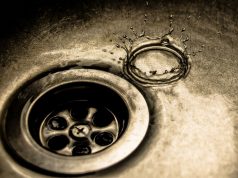
In most households in the UK, central heating provides hot water and space heating. Although there are several types, the main idea behind this system is that heat is generated in one “central” location and then distributed throughout your home via pipes and radiators, underfloor heating, or, more rarely, a network of ducts. Installing central heating in your home shouldn’t be a decision taken lightly since it is crucial for keeping your home warm and comfortable throughout the year. If you need to install a heating system, here are 5 questions you should ask yourself in order to make the right decision.
What type of central heating do I want?
There are many factors at play when it comes to installing a central heating system in your home. One of the most important is the type of heating you are looking for. This decision boils down to the type of boiler that is best suited for you. There are 3 main types: conventional, system, and combi boilers. You should familiarise yourself with the pros and cons of each type. For example, conventional and system boilers require more space since they use external water storage tanks for their operations. Combi boilers, on the other hand, are compact since they heat water on demand. Be sure to ask a home heating expert about which type matches your home’s characteristics and needs. Find the best HVAC tools to help you with central heating.
Which fuel is right for my home’s heating?
Another important choice is how you’ll power your central heating. First, consider whether you are connected to the mains gas network—95% of houses in the UK have a gas connection. If so, gas is probably the most practical and least expensive choice. However, if you aren’t connected to the gas network, you’ll have to choose other fuel alternatives. These are usually electricity, oil, LPG, a renewable technology, or a hybrid. Electricity is easy to use since almost all homes have access to this energy. However, it is very expensive compared to other fuels, even after taking Economy 7 and Economy 10 rates into consideration. Oil and LPG are the cheapest option, but you’ll need to install an external storage tank and have regular fuel deliveries made to your home. The best way to power your central heating depends on your home and access to different fuels so be sure to mull over your options.
How much will the installation cost?
Installing central heating is incredibly costly. As with any large purchase, you’ll need to have an accurate estimate of the costs involved. Unfortunately, obtaining these estimates is not always straightforward since there are many factors affect the total price. These include, for example, the boiler type and the necessary components, the number of radiators, the size of your house, and the individual make of the boiler. For a 2 bedroom home, installation costs will be between £2,000 and £3,000. The best way to get an accurate idea of prices is do as much research on heating installation costs as possible and to contact multiple heating professionals for quotes. At the very least, you should compare 3 quotes. It is also a good idea to prepare for a lot of variability between these prices since each heating company has their own way of calculating costs.
How energy efficient is my house?
The efficiency of your home is incredibly important to your energy bills. If your home has insufficient insulation and plenty of holes and cracks, then a lot of the warm air will just escape. To avoid this, you need to do everything you can to improve the energy efficiency of your house. For example, you can fit in extra cavity wall insulation or install draught excluders on your windows and doors. Once your home is properly sealed, then your central heating will be able to do its job effectively. Before you choose your central heating system, check the energy efficiency of the boiler. Nowadays, there are highly efficient models with ratings over 90%, meaning that less than 10% of the energy is wasted.
Making sure your central heating system is the best match for you and your home is so important. When installing central heating, you’ll need to think about the issues above carefully in order to make the right choice. Don’t make the mistake of going for the first model you see—instead, consider your options and make an informed decision.













